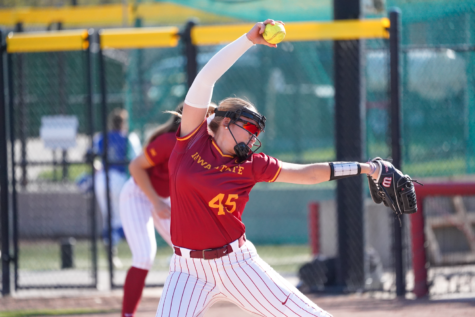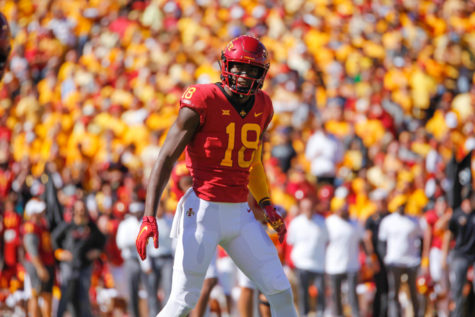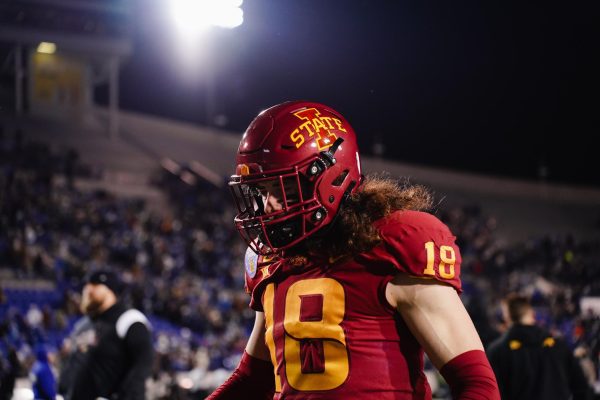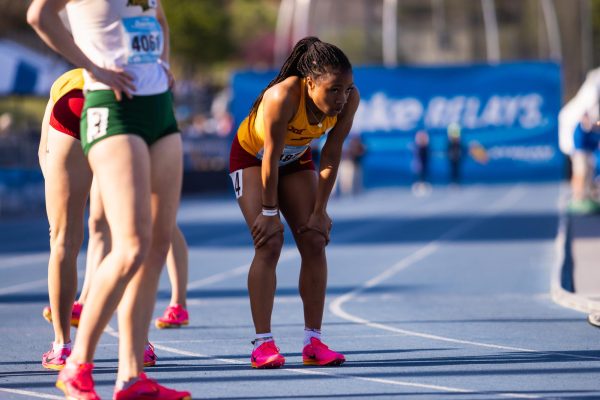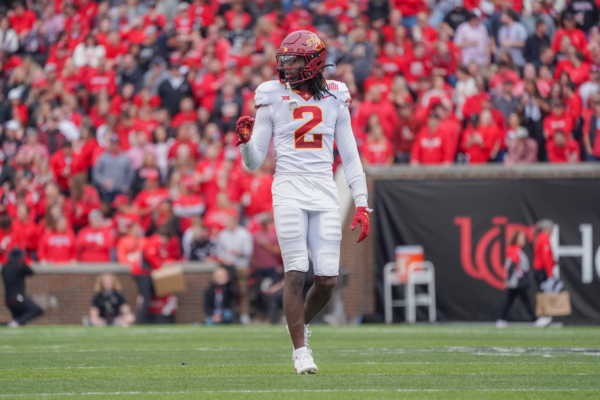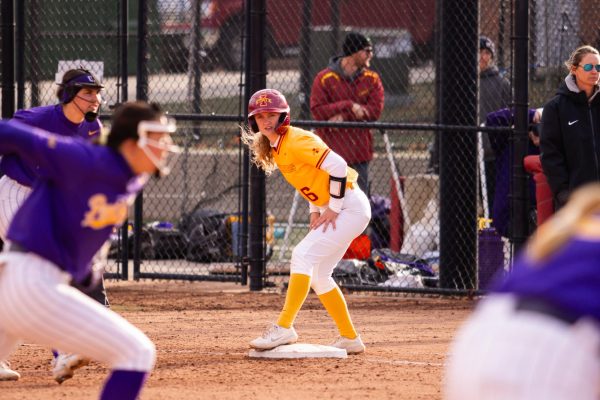Iowa State handles heat
September 5, 2001
Korey Stringer is buried under 35 days of headlines.
Yet it is the former Minnesota Vikings’ ink that remains fresh in minds. His ink that raises awareness for Cyclone athletes.
Lorenzo White is a 6-foot 5-inch, 341 pound offensive lineman for Iowa State.
He’s soft-spoken, consumes a hand when offered in greeting and is a returning letter-winner from the 2000 season.
White says coaches are conscious yet little’s changed in the Cyclones conditioning regimen since Stringer died of heat-related complication on Aug. 1.
“Coaches are giving us longer water breaks,” White says.
But that’s not saying precautionary measures under a summer sun are lost on the coaches.
“The precautions we’ve taken in the past are exactly what a lot of people in the country are adjusting to,” ISU head coach Dan McCarney said during a press conference in mid-August.
“Weighing guys before and after practice. Making sure they get lots of salt and sodium,” are steps McCarney has taken since coming to Iowa State seven falls ago, he said.
Stringer vomited numerous times that day before collapsing on the field.
Many have speculated that Stringer didn’t take himself out because of a stigma attached in football for doing so.
Players may be seen as weak.
White says he’d ask for a breather if necessary.
“You can tell what’s wrong with your body,” he says.
Still, some can’t.
According to research from the National Center for Catastrophic Sport Injury at the University of North Carolina, among high school, college and pro football athletes, as many as 19 have died from heat-related complications since 1995. Four died from heat-stroke in 2000 alone.
These deaths, says NCCSI’s director Fred Mueller, are not traceable to any one cause.
Mueller says it can be a lack of acclimatization, the weight of the athlete, the equipment or shoddy preventable measures.
As far as the NCCSI’s research is concerned, the problem is local to football.
“No athletes in other sports have died [due to heat],” Mueller says.
It’s Thursday afternoon in Lied Recreation Center and 14 men’s cross country runners are sitting, now stretching, in a circle around head coach Kevin Bourke.
“Just a reminder guys,” Bourke says, “take water with you all day. Sip on it in class … We haven’t run into any problems in quite a while.”
The Rec’s fans emit a loud whirring, yet on the Astroturf some 50 feet below, the air remains unmoved.
It’s hot. The T-shirts stick to the bodies of the runners that choose to wear them.
When the runners leave for their 40 or 50 minute jogs, Bourke says Stringer’s death hasn’t affected their conditioning.
“We preach hydration all the time. Once we become dehydrated, everything shuts down,” he says.
It’s nearing 5 p.m. now, and more runners are returning to the Rec.
The sunlight, muted through the windows high above, glistens on the skin of those who ran shirtless.
They fill and refill their cups with Powerade, but none look as though they need it.
No one is breathing heavily.
Still, “It’s important for us to drink water all day,” Bourke says.
“We stress the importance of water,” ISU women’s soccer head coach Stephanie Gabbert says.
Krista Voss, the lone senior on the team, says although Stringer heightened awareness of heat stroke, she does not think extra precautions were taken at this season’s start.
Preventing heat related complications have always been the norm.
During two-a-days, players weighed in before each practice.
If weight wasn’t gained back by second weigh-in, they were monitored closely.
And if 5 percent of the body weight was still absent by the first practice second day, the athlete wasn’t allowed to practice, Shannon Peel, the soccer head trainer said.
“They work hard, and they rest,” Gabbert says.
All sport trainers may rest their athletes, but of all fall sports, supplements at Iowa State are taken primarily by football players.
A study of 21,000 collegiate athletes released in August by the NCAA and published in last Friday’s Washington Post showed that 42 percent of student-athletes used a nutritional supplement in the last year, and 57.3 percent began them in high school.
The supplements reportedly bolster strength and muscle mass.
White knows of a few guys who took supplements over the summer.
Once the season began however, White says the coaching staff discouraged taking them.
Although supplement use is fledgling, its research shows it may be associated with dehydration.
White’s never taken any supplement like creatine or Ultimate Orange however.
“I’ve always been big.”








